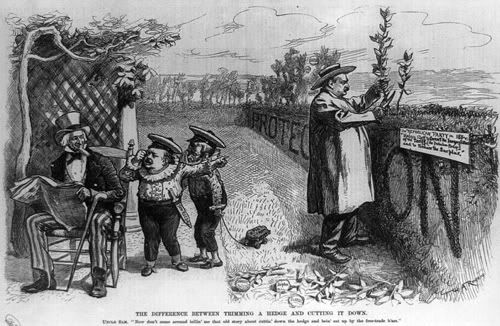What is a “free market”? I’m no economist, but I believe it is allowing businesses to operate independent of government control or oversight. This is my understanding of “free market” capitalism. In a true “free market” there would be no safety standards for automobiles, no one testing if meat was safe, no labor laws. Children could work in factories, like they used to, before government started meddling in things.
But “the market” has rarely, if ever, been a true free market. C. Stanley Chapman, a wealthy orange grower in Fullerton, talks about how their business was threatened in the early to mid-twentieth century by foreign producers who “had the advantage of cheap labor.” So, what did the Chapmans do? They went to the government and asked for help: “Father made several visits to Washington to work on various Congressmen and Senators.”
After some convincing (and campaign contributions?) Chapman convinced the government to establish a tariff on foreign oranges and lemons: “When this tariff was established, it immediately gave us a chance to compete.”
That was not the free market. It was government intervention. And Chapman was a strong Republican! He almost ran for vice president. I don’t think this is unique. The common notion is that Republicans are for the “free market” and against government meddling, except when that “meddling” brings them more profits, with tariffs, subsidies, tax breaks, bailouts, etc. Why do you think these big companies spend so much time and money lobbying congress? They want help, just like everyone else.

I don't know what this political cartoon means, but it has something to do with tariffs.
